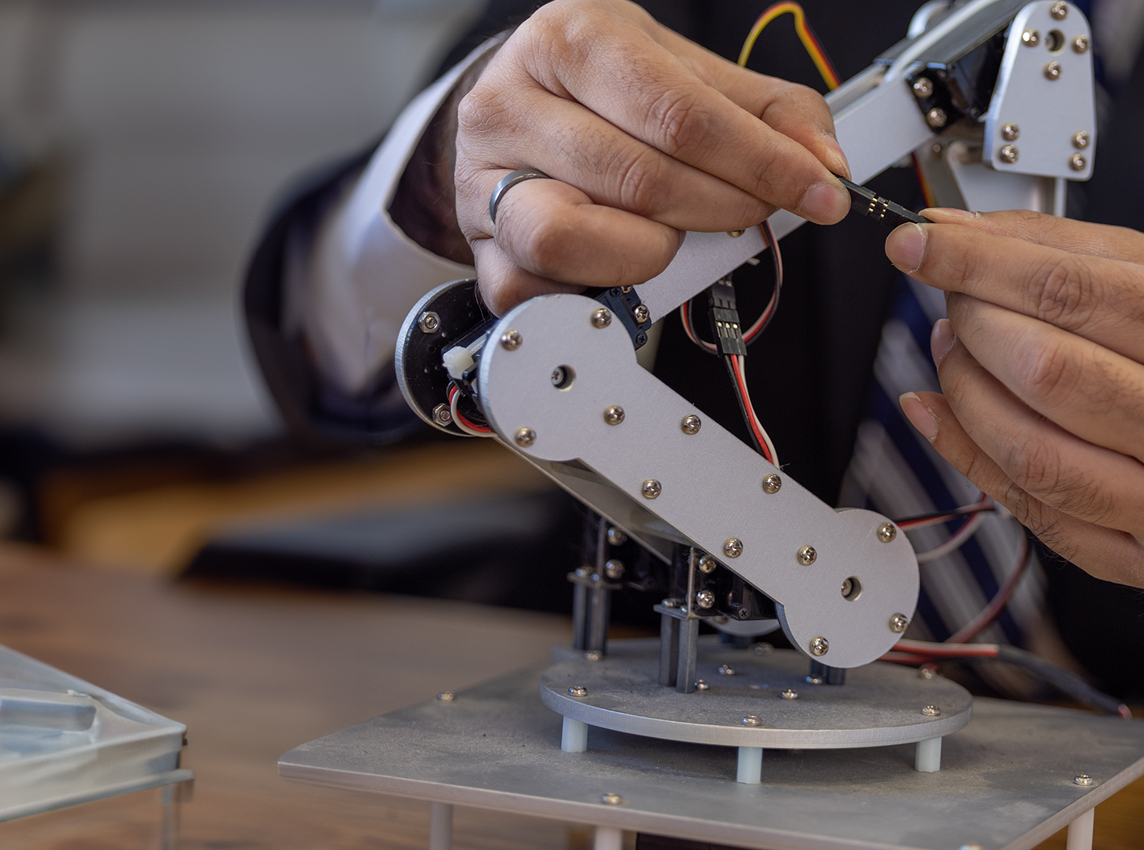
innovating in
Artificial Intelligence
Working across disciplines to deliver on AI’s promise
We’ve engaged in AI research for more than 50 years, creating and delivering world-changing advances like the first mobile robot with the ability to perceive and reason, commercial-quality speech recognition, and the Siri virtual personal assistant.
Today, AI technology — and the creation of new AI technology — are core to the research of many groups across SRI. Our researchers collaborate to build systems that sense, model, and learn to create ever more capable applications. Our approach is human-centered, emphasizing system transparency and explainability to address the critical issues of predictability and reliability of AI-based systems. Contact us to learn more.
Innovating in
“We work across disciplines and in close collaboration with our government and commercial customers to create new technologies, while strengthening the guardrails, so we can all truly benefit from AI’s extraordinary promise.”
Real-world impact
-

SRI selected as DARPA’s Regional Commercial Accelerator
DARPA looks to harness SRI’s expertise to speed up tech transition — out of the lab into the real world — and scale DARPA-funded technologies for U.S. national and economic security outcomes.
-

Garrett Wang: Making AI building accessible to all
The CEO and co-founder of Cerbrec works with SRI to simplify AI for a range of industries.
-

Wes Madrigal: Streamlining the AI data pipeline
SRI spins out Kurve to help customers automate AI to speed up business operations.
Core AI technologies and applications
Bioinformatics databases
BioCyc database collection
A comprehensive website for sharing fundamental information about biochemical pathways and genomes with researchers around the world
EcoCyc: encyclopedia of E. coli genes and metabolism
A bioinformatics database that describes the genome, metabolic network, and regulatory network of Escherichia coli
Recent publications
-
The Comparative Genome Dashboard
The Comparative Genome Dashboard is a web-based software tool for interactive exploration of the similarities and differences in gene functions between organisms.
-
The Genome Explorer Genome Browser
In this paper we report on a major update to our browser, Genome Explorer, that provides nearly instantaneous scaling and traversing of a genome, enabling users to quickly and easily zoom into an area of interest.
-
Automating the Derivation of Unification Algorithms. A Case Study in Deductive Program Synthesis
The unification algorithm has long been a target for program synthesis research, but a fully automatic derivation remains a research goal.
